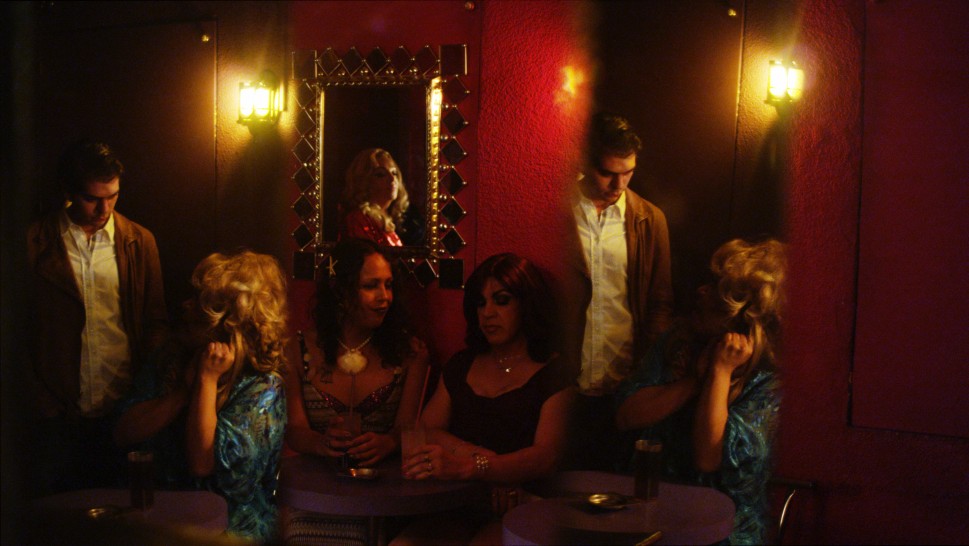
Casa Roshell
Mexico/Chile, 2017, digital video, color, 71 min.
Spanish with English subtitles.
Copy source: Juan Pablo Bastarrachea
During a trip to Mexico in 2014, after making Naomi Cambel (2013), the director Camila José Donoso learned about Club Roshell: a private site founded by the trans artist and activist Roshell Terranova in 2004, populated by men looking for somewhere they can assume an alternative gender role and explore their identity. Over six weeks, the filmmaker visited the club, observing, talking to, and generating dialogue with its members, and finally combining them to make this film, which she describes as a “Trans Fiction.” The film is ultimately fictional, but written using real-life historical context and dialogue fragments, and performed, in many cases, by the club’s community members—in hallways, nooks and crannies and mirrors. The distinctive dialogues that happen in the nighttime privacy of Casa Roshell are full of agreements, disagreements and spectacular moments, allowing viewers to realize how the multiplicity of trans experiences, which are on full display in the club, are so infrequently seen elsewhere.
The young Valeria Sarmiento made her first short documentary film amidst the political turmoil of 1970s Chile, opening up new possibilities in the cinematic landscape of the moment, which had been largely focused on the politics of the country’s class struggle. With singular aesthetic and thematic freedom, her ten-minute film focuses on questions of gender and makes the invisible visible, painting an intimate portrait of women strippers in the most famous clubs in Santiago. These women emancipated themselves from situations of domestic violence and worked strenuously to maintain their jobs, longing for their children to have easier professional situations and lives. The film was never released as a result of the 1973 coup, and its raw footage was exiled to France, where it was lost and unedited. In 2021, the negatives were found and restored. Fifty years after its production, viewers can finally appreciate the first work of one of the first major filmmakers in Latin American cinema.
Valeria Sarmiento is a director, screenwriter and editor who has worked alongside other renowned filmmakers including Raúl Ruiz, Luc Moullet and Robert Kramer. She was educated at the film school at the University of Chile, and made almost thirty films there. In 1969, she married Ruiz with whom she collaborated artistically until his death in 2011. She is a member of the Academy of Arts and Sciences in Hollywood, and in 2019, the University of Valparaíso awarded her an honorary doctorate.
When the Argentinian dictatorship ended in the early 1980s, the countercultural scene flourished like never before. In Córdoba, a conservative and Catholic city, drag performers La Delpi, La Colo and la Gallega began the group Las Kalas, which performed their musical cover show every weekend at La Piaf, one of the oldest gay clubs in Argentina. For the LGBT community, there was an idyllic world in the friendly intimacy of La Piaf, but outside of the club’s protective walls, the police continued violently targeting them, and the HIV pandemic was wreaking havoc, proliferating without any available treatments. After using VHS archives in her first feature, Silence is a Falling Body (2017), Agustina Comedi continued working with them for this film, combining the artifacts with fictional recreations to innovatively depict communal memory, remember a past that never was, and film a future that could have been different.
Screenwriter and film director Agustina Comedi studied modern literature at the National University of Córdoba. In 2017, she premiered her first opera Silence is a Falling Body at IDFA, which received multiple awards and was selected for more than fifty international festivals. She currently works as a teacher of Audiovisual Workshops at the Raymundo Gleyzer Popular School, is an advisor on various film projects, and is writing her next feature, School of Whores.


















